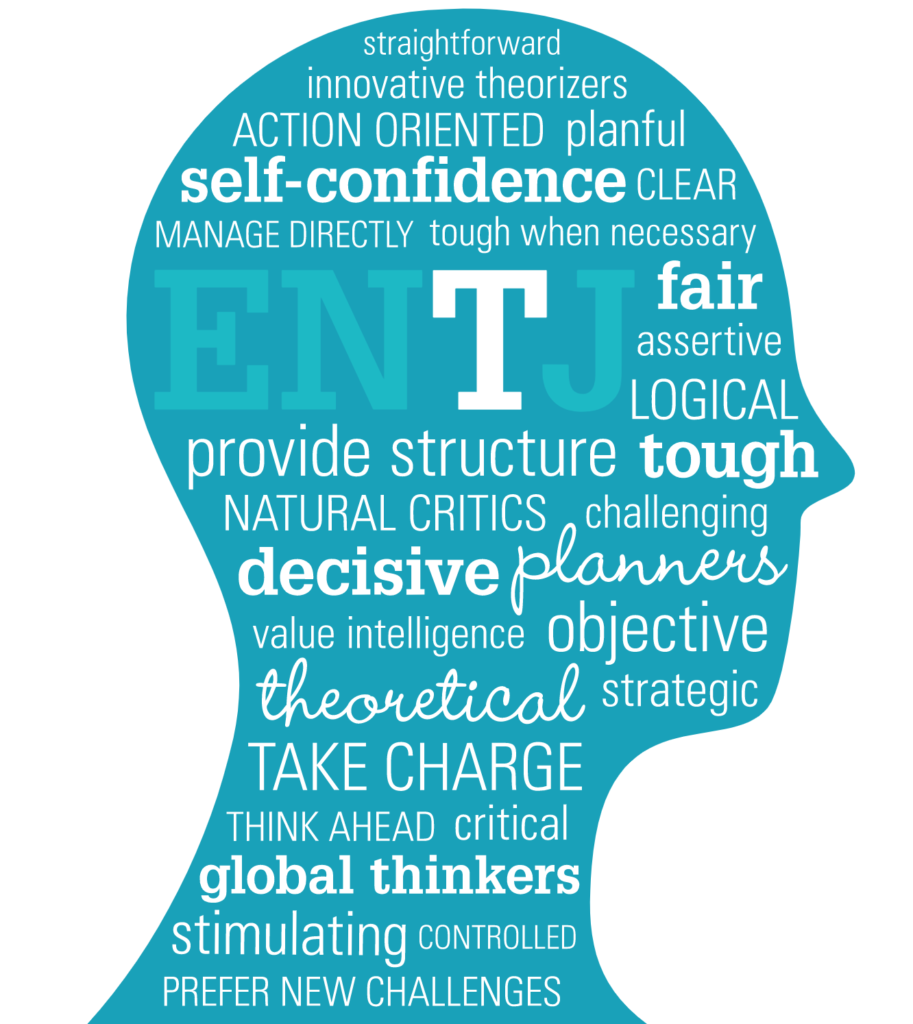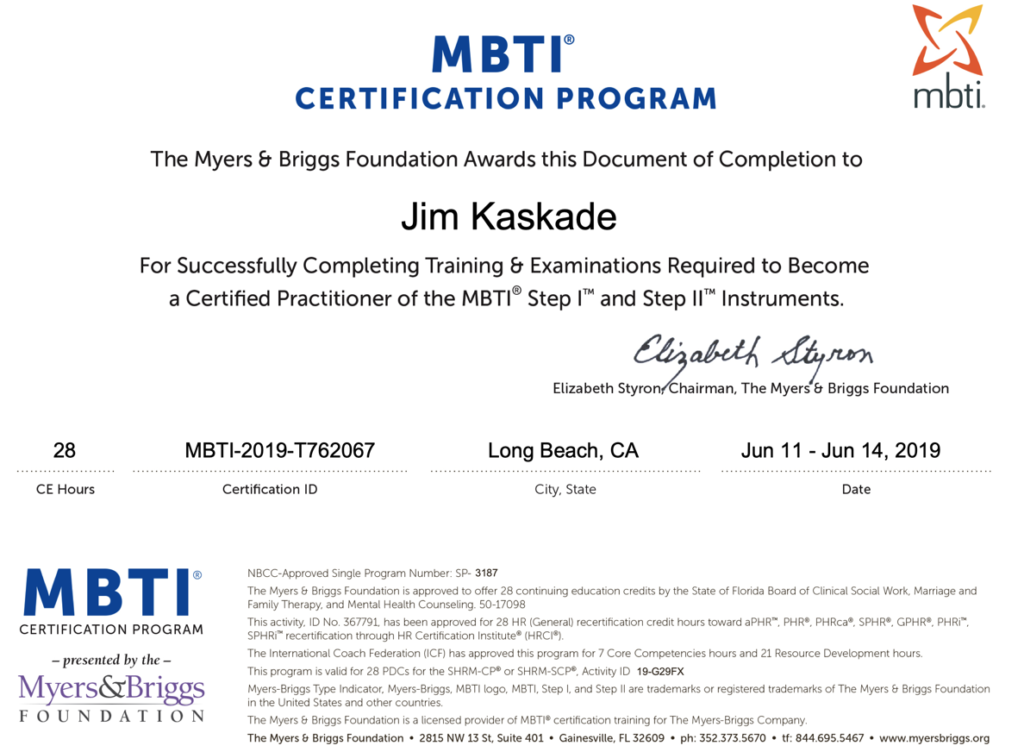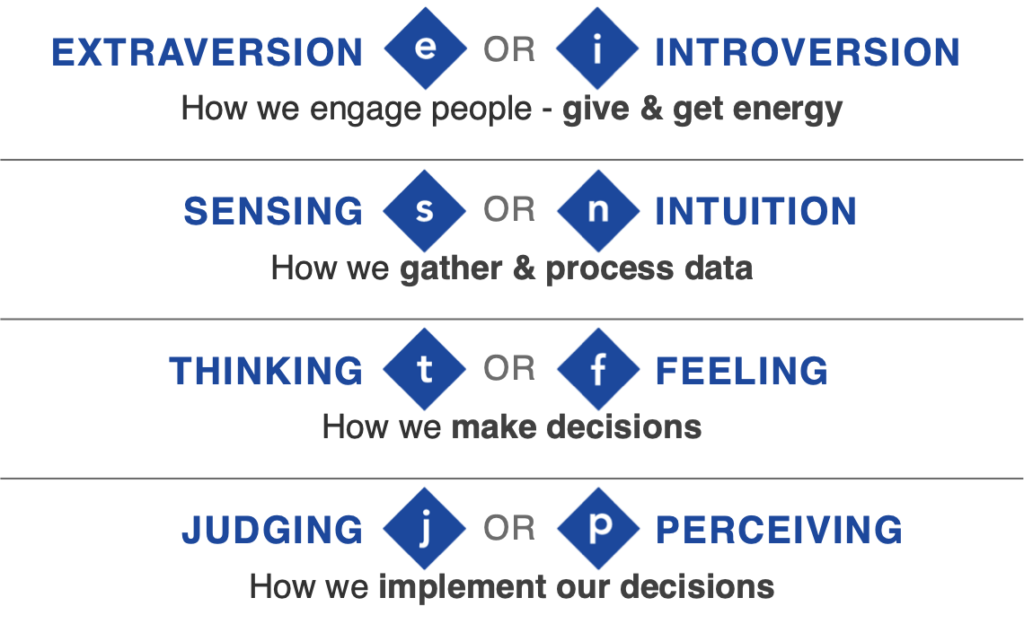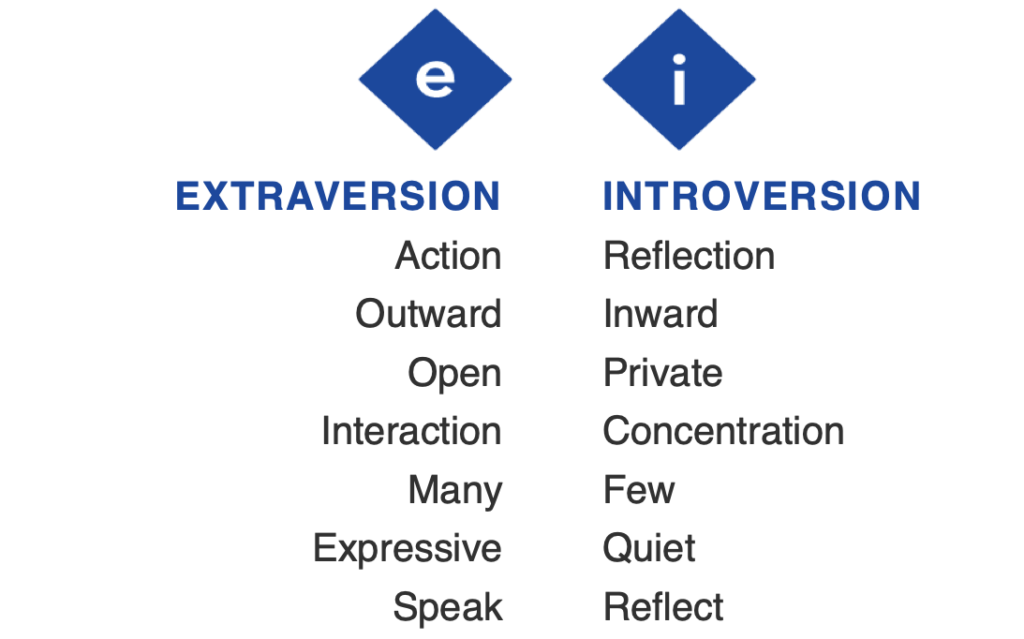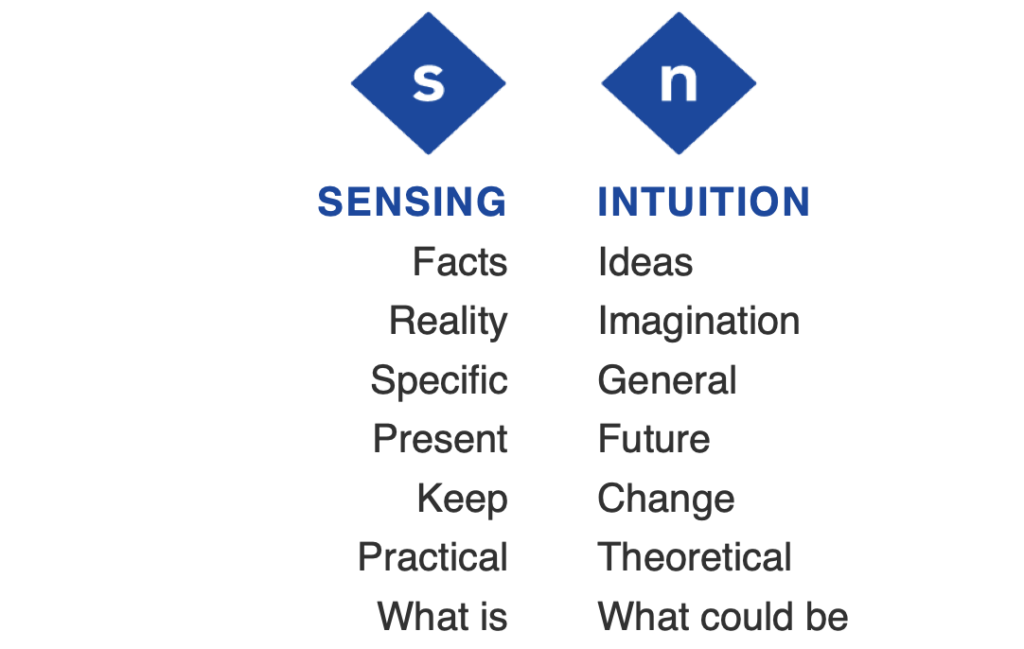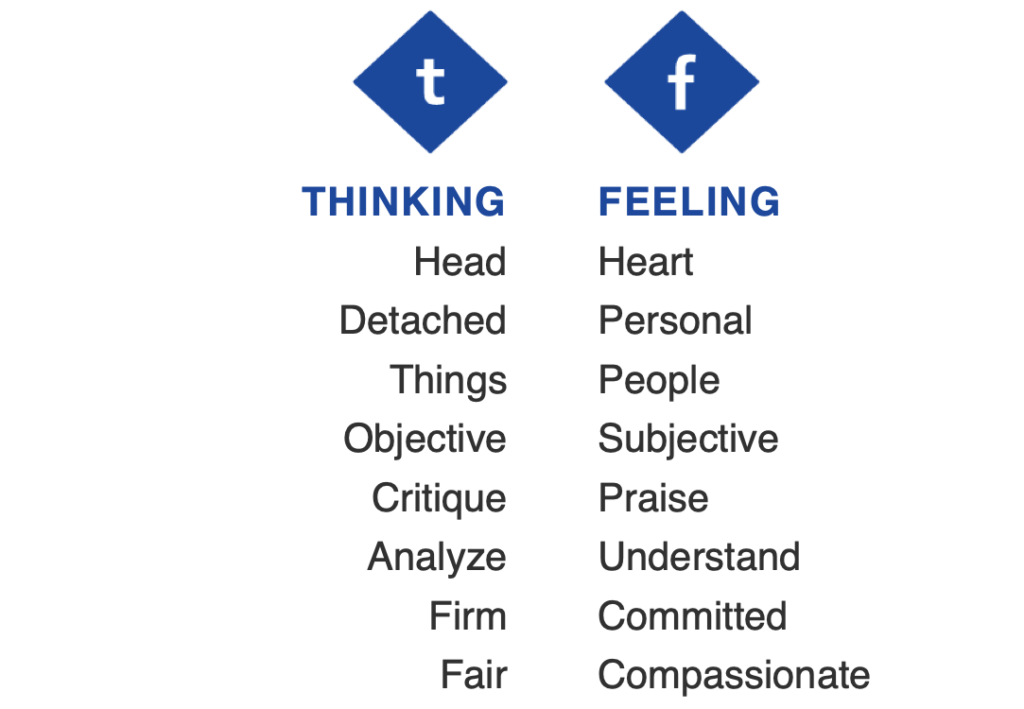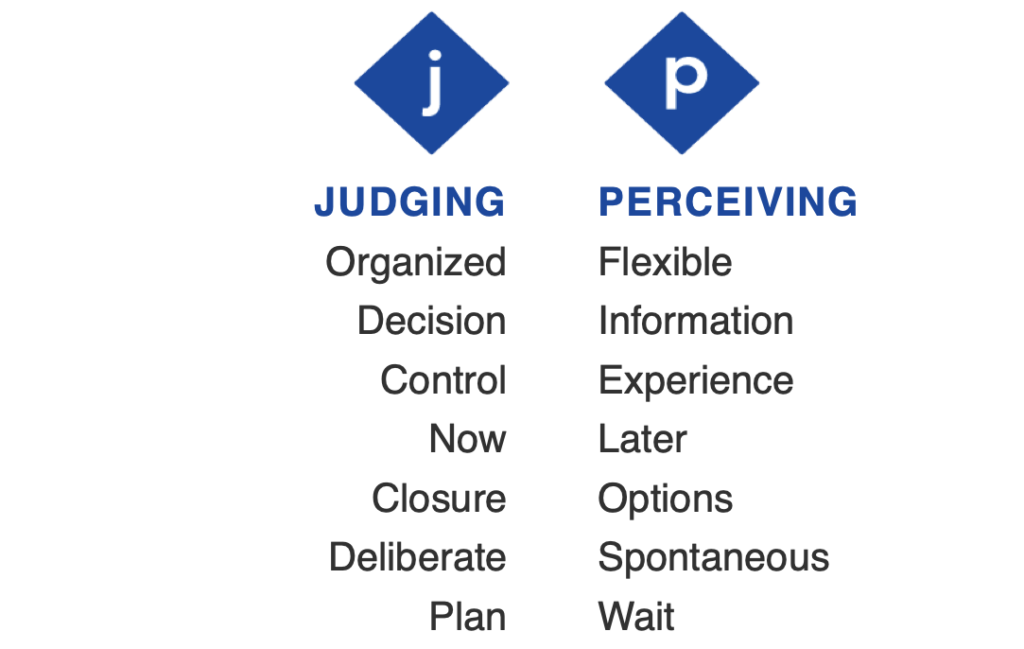I’m an ENTJ
I’m an ENTJ – 100%. And based on a sample of 16,773 people, I’m 1.8% of the global population (for better or worse, currently the most rare personality type). How do I know? I was administered a “Step II” assessment which is based on The Myers-Briggs Company’s latest in psychology type assessments. They recently updated their work in November 2018 (which began in 1940 with Carl Yung, a Swiss psychiatrist). My assessment was based on the results of behavioral questions administered to 16,773 participants in 20 countries (delivered in over 30 languages/dialects).
After meeting with the CEO of The Myers-Briggs Company, Jeff Hayes, I was inspired to improve upon one of my leadership playbooks – executive team building. So I did some research on who was their top trainer and found Patrick Kerwin. Patrick has over 28 years of experience in working with teams, not just with Myers-Briggs Type Indicator assessments, but relating those assessments to team building, management and leadership, coaching, organizational development, diversity and multicultural training.
As a result, I am now a certified practitioner of MBTI. What does this mean? Well, I’ve been using MBTI assessments for about 10 years with my senior teams. I wanted to up my game by making sure that I was properly assessing my senior team members and their personality types (including myself, of course).
A Little About ME
Based on a detailed assessment performed by Patrick Kerwin, here’s a summary about me:
I’m logical, analytical, and objectively critical. I like long-range planning and strategic thinking and prefer to be in charge. My focus is on ideas, and I like to think ahead, making a systematic effort to reach my objectives on schedule. I am impatient with confusion and inefficiency, and I can be tough-minded when I see these problems getting in the way. I prefer working with frameworks more than working with details. I like to come to quick decisions about how to proceed and then actively lead others forward accordingly. Systems and principles are important to me, and I apply principles to whatever I do. If I am to change my methods, I need to change my principles first. I value logic and consistency. I am likely to be most satisfied in a work environment that values long range planning, involves me in making decisions, and lets me see that the plans are implemented. People can count on me to take charge and make sure things are done competently. That’s me in a nutshell.
This assessment was based on Carl Yung‘s original work. Carl was influential in the fields of psychiatry, anthropology, archaeology, literature, philosophy, and religious studies. He worked as a research scientist at the famous Burghölzli hospital, under Eugen Bleuler. During this time, he came to the attention of Sigmund Freud, the founder of psychoanalysis. The two men conducted a lengthy correspondence and collaborated on a joint vision of human psychology. Katharine Cook Briggs and Isabel Briggs Myers were keen observers of personality differences and they not only studied and built on the ideas of Carl Yung, but they packaged his work in such a way to deliver assessments in a consistent and accurate way.
In early 2000, I became aware of the fact that that Myers-Briggs was (and is) the most widely and universally used tool for understanding the personality differences among people, globally. As those who know me, I believe in data and statistical significance. But I also use simple classification to make decisions. I don’t believe that MBTI is the “end-all-be-all” but a simple classification of people that allows for a conversation and, thus, I’ve been using it for quite some time to start conversations with my senior team.
Given the opportunity in mid-2019, I decided to take a deeper look into my own personality and how I could improve my use of this tool to understand four basic elements of a senior team (caveat: this is MY interpretation of the MBTI personality preference pairs):
For those interested in what drives my leadership style as a CEO, you can get a deeper read into “me” across these personality type preferences below.
A deep dive into ME
Below are a few details about my ENTJ personality and what I’m doing to enhance them across four areas of my job as a CEO:
- Communicating
- Managing Conflict
- Dealing with Change
- Making Decisions
Then I’ll get into my more dominant personality processes, followed by my weaker processes. Then I’ll finish up with a reflection about me under stress.
Communicating
Here are the aspects of how my personality type influences how I communicate, especially as part of a team.
| My High-Level Personality Facets | My Communication Style | What I’m doing to Enhance |
| Initiating | Start interactions by helping people get to know one another. | Make sure that people actually need and want these introductions. |
| Expressive | Say what is on my mind to those present. | Recognize when it’s important NOT to say what’s on my mind and then don’t say it. |
| Gregarious | Know a lot of people and easily pass on information. | Make sure to be discriminating in what I communicate and to whom. |
| Active | Like to communicate and interact with others face-to-face. | Recognize when face-to-face communication may be intrusive or unnecessary. |
| Enthusiastic | Readily show enthusiasm for the subject at hand. | Be careful not to overwhelm and override others; make sure I ask for input. |
| Concrete–Abstract | Talk about some of the facts and details as well as their meanings. | Be aware of when I’m focusing on details and when on meanings and choose the focus that is better for the situation. |
| Logical | Present my conclusions in a straightforward, linear, structured manner. | Invite others to tell me alternative ways to look at the issue and take what they suggest seriously. |
| Questioning | Want to ask questions. | Be selective in choosing questions to ask so as not to intimidate people. |
| Critical–Accepting | Critique or accept depending on the importance of the issue. | Be aware that when I am stressed, as I’m more likely to be critical inappropriately. |
| Tough | Embody the phrase “Let’s get on with it!” | Be aware that sometimes my way of moving ahead may be wrong for the situation. |
| Methodical | Identify the steps and their order before starting a task. | Be tolerant of others who plunge in without identifying steps, unless a critical piece is missing. |
Managing Conflict
Conflicts are inevitable when working with others. People may differ in what they define as conflict, how they react to it, and how they reach resolution. Although perhaps unpleasant, conflicts may lead to improved situations and enhanced relationships when discussed and managed appropriately. Part of conflict management for every personality type includes:
- Making sure that the work gets done while maintaining your relationships with the people involved.
- Recognizing that all perspectives have something to add, but any perspective used exclusively may ultimately impede resolution of a conflict
The information below explains how my personality type may affect my efforts to manage conflict.
| My Personality Facets | My Conflict Management Style | What I’m doing to Improve |
| Expressive | Discuss the conflict and my emotional reactions to it with whoever is available. | Be careful in selecting those with whom I talk and make sure I get help from those who can really make a difference. |
| Gregarious | Involve others in resolving the conflict. | Respect the need of some people to remain uninvolved until they are ready to participate. |
| Enthusiastic | Get excited, even passionate, about the conflict and how upsetting it is. | Be aware that my intensity may push people away and make the situation worse, so calm down as much as possible. |
| Reasonable | May spend too much time arguing that that my solution is right, even though it may ignore the impact on people. | Stop, listen to others, and accept that a solution other than mine may be best. |
| Questioning | Ask many questions of others to reveal all the issues in the conflict. | Be aware that people may take my questions as challenging rather than helpful in resolving the issue; be clear about my intent. |
| Critical–Accepting | Look for both what’s wrong and what’s right. | Point out both of these sides in a kind, considerate way. |
| Tough | Push my own convictions on how to resolve the conflict onto others. | Recognize that my “take it or leave it” stance will further alienate people; force myself to consider other viewpoints. |
| Early Starting | Believe some conflicts can be avoided by starting work on projects early. | Make allowances for people for whom starting early isn’t comfortable or effective. |
Dealing with Change
Change is inevitable and affects people in different ways. To help my staff deal with change, I attempt to:
- Be clear about what is changing and what is remaining the same,
- Identify what I need to know to understand the change and then seek out that information. To help others deal with change,
- Encourage open discussion about the change; be aware that this is easier for some than for others.
- Make sure that both logical reasons and personal or social values have been considered.
Many factors of my personality influences my style of managing change….lets dig into this.
| My Personality Facets | My Change Management Style | What I’m doing to Improve |
| Expressive | Freely share my feelings about the change with others. | Be aware that some people may not want my input before they have considered the change on their own. Limit my expressiveness to those who appreciate my style and give others time to think things through on their own. |
| Gregarious | Discuss the changes and their impact on you with many people. | Be aware that people vary in their level of interest in what I have to say and thus be selective in whom I talk to. |
| Concrete–Abstract | May shift from one perspective to the other, thus confusing myself and those around me. | Identify what’s most important and appropriate and use that perspective. |
| Imaginative | Enjoy the novel aspects of the change and the resourcefulness it requires. | Recognize that there are real costs involved in pursuing the change. |
| Experiential–Theoretical | Are interested in theories or patterns that explain the immediate situation. | Help others see the relevance of both perspectives. |
| Original | Embrace change for the sake of change!!! | Be selective about which changes are really worth pursuing. |
| Tough | Will actively embrace or resist some change, depending on whether I agree with it. | Step back and consider whether my stance will really get me what I want in the long run. |
| Casual | Like letting the changes unfold as they may; see surprises as a welcome challenge. | Don’t dismiss the concerns of people who think ahead; acknowledge the validity of their concerns. |
| Planful | Plan as far in advance as possible for the changes. | Allow for the unexpected in my long-range plan—it will happen! |
| Methodical | Want to have details of the many steps necessary to implement the changes. | Know that circumstances may require carefully developed steps to be changed in the moment. |
Making Decisions
Effective decision making requires using all aspects of my personality: first to get the facts, next to identify possibilities, considering logical consequences, and last to know what’s important.
My style is Logical and Reasonable. This means that I:
- Trust my way of making decisions and, therefore, readily make decisions based on logical analysis of data.
- Recognize the impact of my decisions on people and relationships but see that as secondary (facts drive me).
- Focus on accuracy to achieve a good decision.
- Am seen as precise, objective, and confident.
- Am sometimes seen as inflexible.
- See some conflicts as “win-lose” situations, which is when I become competitive.
Questions I ask during my data gathering process:
- What do we know? How do we know it? What else could this mean?
- What else can we come up with?
- Are there other interesting ideas?
- Can you show me how it works? How is it all interconnected?
- What’s a different way to do this?
Questions I ask during my final decision-making process:
- What are the pros and cons?
- What are the logical consequences?
- But what about…? (digging into the data presented to me)
- What’s wrong with this? What’s right with this?
- Why aren’t we following through now?
Things I do to improve:
- Pay careful attention to the answers.
- Asking other questions, mostly around the impact on the people.
Dominant vs. Weaker Type Preferences
My favorite process is thinking (T) out loud (e) to communicate my analyses and logical decisions; followed by intuition (N) as my second (or auxiliary) process, which provides balance as it is used mostly in an introverted (i) (inside my own head) way that allows me to develop a unifying vision of what really matters.
My less preferred process, Sensing (S), is used in particular situations that requires me to personally dig into the data (especially when someone on my team is NOT data-driven). But doing so tires me, and frustrates me…unless I have tons of time where digging into the data allows me to ideate on additional future possibilities.
My least favored process, is feeling (F) and, when used, is mostly introverted (i) (I keep my feelings to myself).
Me under Stress
Each personality type tends to experience and react to stress in predictable ways. As an ENTJ, I may first exaggerate my favorite process, Thinking about the data, and in doing so becoming overly controlling and critical.
Then as my stress continues or increases, negative versions of my least favored process, Feeling, may take over. This means that I can feel unappreciated, emotional, and despairing.
To bring back some balance and return to being myself, I typically:
- Stop what I’m doing and take a break from the activity or situation that is stressful.
- Recall similar past experiences and what helped.
- Look for additional information to help me see facts and possibilities that I hadn’t considered before.
Elements of ENTJ
Ok. Some of you data-driven people may be MBTI naysayers. But I’m a believer in simple supervised classification (think Naive Bayes for those ML/AI savvy)- it’s almost as simple as descriptive statistics. And 16 personality classes which have been evolved for over 75 years presents a simple classification tool that I feel is sufficient in starting a dialogue. It’s as simple as that. Do I use if for selection (aka recruiting)? No. I use it AFTER selection to help people understand each other’s work styles. So here’s a little more about me by classifier labels called personality “preference pairs”.
E (vs. I)
I prefer Extroversion (over Introversion). Here are some simple differences to help people understand my preference, E, over the opposite alternative, I.
N (vs. S)
I prefer Intuition (over Sensing). Here are some simple differences to help people understand my preference, N, over the opposite alternative, S.
T (vs. F)
I prefer Thinking (over Feeling). Here are some simple differences to help people understand my preference, T, over the opposite alternative, F.
J (vs. P)
I prefer Judging (over Perceiving). Here are some simple differences to help people understand my preference, J, over the opposite alternative, P.
It wasn’t just Patrick Kerwin who helped me understand my personality classification. 25 other people were involved in my personality assessment deep dive. *Whew*. Talk about knowing yourself through a few different lenses!!!
StrengthsFinders
A strengths-based approach is essential for creating an exceptional workplace culture. I learned that more than 90% of the Fortune 500 companies use CliftonStrengths. So I had to investigate.
The CliftonStrengths assessment uncovers which talents you rely on to build relationships, think strategically, execute plans and influence others to accomplish goals. Sounds compelling.
The founders of the StrengthsFinders research, Marcus Buckingham and Donald O. Clifton, advocate focusing on building strengths rather than focusing on weaknesses.When you know your unique set of talents, you’re empowered to succeed by doing what you naturally do best. Every. Single. Day. Sounds interesting….but debatable that one shouldn’t understand their blind spots and improve on their weaknesses as well. But I’ll toe the line and start with strengths, for sure. As an example, here are my top 5 (out of 34) per my personal CliftonStrengths examination:
- Self-Assurance: People exceptionally talented in the Self-Assurance theme feel confident in their ability to take risks and manage their own lives. They have an inner compass that gives them certainty in their decisions.
- Competition: People exceptionally talented in the Competition theme measure their progress against the performance of others. They strive to win first place and revel in contests.
- Arrange: People exceptionally talented in the Arranger theme can organize, but they also have a flexibility that complements this ability. They like to determine how all of the pieces and resources can be arranged for maximum productivity.
- Achiever: People exceptionally talented in the Achiever theme work hard and possess a great deal of stamina. They take immense satisfaction in being busy and productive.
- Command: People exceptionally talented in the Command theme have presence. They can take control of a situation and make decisions.
Self-Assurance
By nature, you often choose to work with members of the group who dare to do things that most people would not risk doing. You have the confidence to venture out on your own. You do not need guarantees of success. When you know ahead of time you can accomplish something, you probably are less interested in doing it. Driven by your talents, you feel upbeat about life when you can register for demanding and rigorous classes. You probably aspire to enroll in specialized courses. Why? You trust yourself to meet the challenges. You know you will acquire lots of knowledge or special skills. Chances are good that you describe the good life as taking the dare, walking to the edge, running toward the unknown, or working high in the air without a net to stop your fall. You probably enjoy the rush of adrenalin that accompanies risky deeds or decisions. It’s very likely that you consistently follow your instincts by choosing to do what you know is correct given the circumstances, the people involved, or the potential consequences. You trust your own judgment. You probably trust your decision-making abilities more than those of others. Instinctively, you routinely gamble on whether to engage outsiders or newcomers in conversations. When you take your chances and succeed, you probably gain confidence. You usually become more assertive when you have to make inquiries, give directions, or issue orders to your new acquaintances.
Competition
By nature, you occasionally set out to be “number one” when comparisons are being made or scores are being kept. Perhaps you derive very little satisfaction from finishing in second or third place. Simply ranking among the top performers may actually be a source of displeasure. Instinctively, you rely on reason to make sense of facts, events, people’s behavior, problems, or solutions. You consistently outmaneuver others when comparisons are being made between your results and theirs. Because of your strengths, you yearn to get ahead. You strive to acquire many of the status symbols and special privileges that come with rank, title, or position. Driven by your talents, you are eager to broaden your knowledge and expand your skills when comparisons are made between you and your opponents. Sometimes your rivalries are public. Sometimes they are known only to you. Either way, you are determined to be victorious by capturing the top prize, finishing in first place, or being declared the very best. It’s very likely that you persevere in your efforts because you believe diligence is rewarded. Reaching your goals spurs you to toil with even greater purpose.
Arranger
Instinctively, you probably are appreciated for your ability to laugh at adversity. Your flair for comedy often reduces the stress your teammates experience. You free their minds to solve problems so they can return to their work. Driven by your talents, you may convince certain people that a particular project or cause improves humankind’s quality of life. Occasionally you persuade them of the importance of protecting the planet’s resources for future generations. Perhaps you help people realize they can accomplish more good as a group than they can as individuals. By nature, you see yourself as a contributing member of the group. You enjoy partnering with intelligent people. You like to exchange information, share observations, or offer tips for doing things more easily, efficiently, or swiftly. You are happiest collaborating with individuals who are not stingy with what they know. You have an ability to figure out how everyone on the team can benefit from each other’s knowledge, skills, experiences, or wisdom. It’s very likely that you gravitate to activities that permit you to join teams. Why? You probably enjoy spending time with their members. You often figure out ways you
Achiever
Driven by your talents, you expend much mental energy making sense of events, identifying problems, and/or creating solutions. You likely sort through a lot of information to pinpoint essential facts. You probably rely on reason to arrive at sound conclusions or to make correct decisions. Because of your strengths, you normally launch projects with ease. You methodically identify pertinent facts and establish a step-by-step workflow. This probably is the way you prefer to reach desirable goals. Chances are good that you customarily establish weekly performance targets for yourself. You organize and plan new projects. Usually you know exactly where you are headed, how you will proceed, and when you will reach your goal. Pushing hard for desired results energizes you. Instinctively, you channel your energy into your work or studies. You seldom count the hours you work. Feeling fully engaged in what you do is a major source of satisfaction. You believe there is always something more challenging you can pursue. Given your ability to withstand hardship, adversity, and stress, it is no surprise you love what you do. You strive to do more and more of it each day. It’s very likely that you feel very good about yourself and life in general when you exhibit the selfdiscipline to apply all your energy — mental and physical — to a job, assignment, goal, or obligation.
Command
Driven by your talents, you typically feel good about the quality of your life when you can arouse your friends to produce results. You often motivate them with compliments. You also say, “Let’s start working.” You probably issue direct orders when the need arises. Instinctively, you usually coordinate your teammates’ schedules or outline their agendas. You usually help them obtain needed supplies. You insist they boldly confront difficult people or complicated situations. You probably are the member of the team who sets up things to unfold exactly as you planned. Chances are good that you can influence your friends to be productive. How? You point out the talents, skills, and knowledge each one possesses. You can convince them they have the abilities needed to solve problems, implement changes, or launch initiatives. You probably prevent many people from losing confidence in themselves. It’s very likely that you toughen and fortify individuals by telling them how much you value their contributions, talents, knowledge, and skills. Because of your strengths, you spontaneously dissect plans, proposals, processes, or contracts. You often take apart mechanisms. What do you do with all these pieces, parts, or steps? You carefully examine them. Then you determine the function of each one. Frequently you are the most knowledgeable person in the group. This helps you generate more original ideas than your coworkers, teammates, or classmates can.
